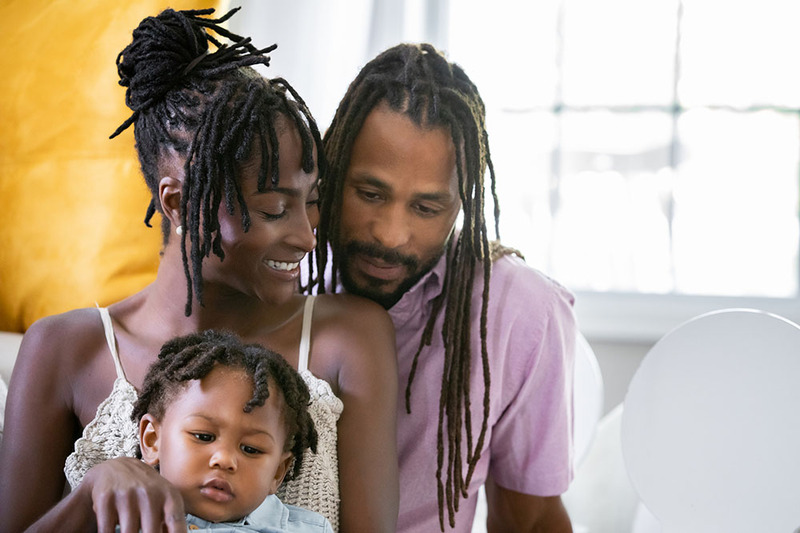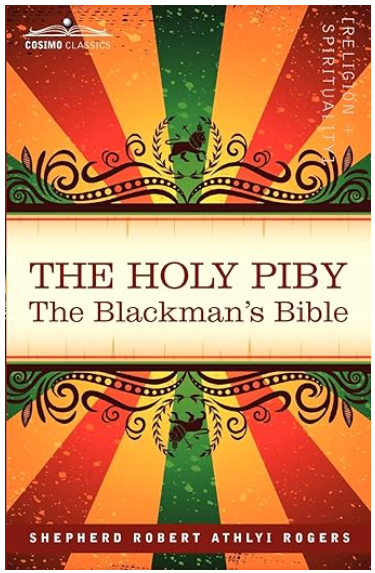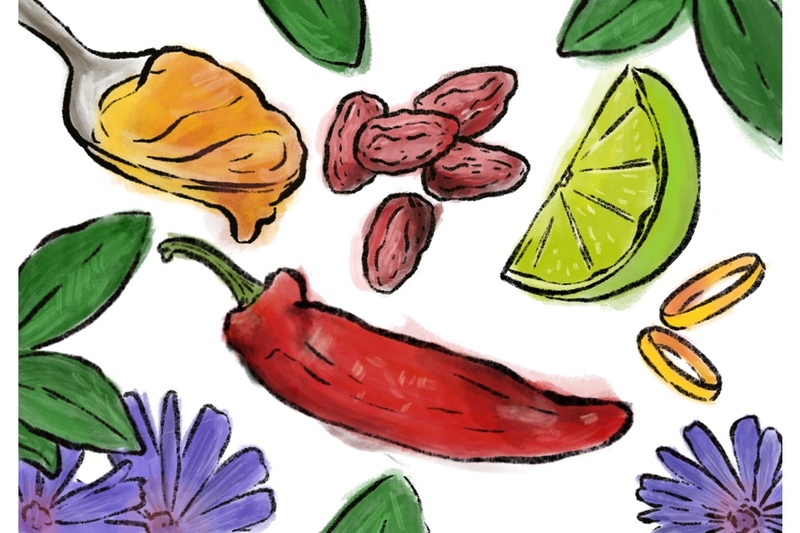AMERICAN WEDDINGS BLOG
Stay up to date with the latest wedding ceremony trends, script writing inspiration, tips and advice for first-time officiants, and news that matters to couples and wedding ministers.
Stay up to date with the latest wedding ceremony trends, script writing inspiration, tips and advice for first-time officiants, and news that matters to couples and wedding ministers.
Published Wednesday, Oct. 9th, 2024
Last updated Wednesday, Oct. 23rd, 2024

One soul embracing another, seeking and choosing each other, energies aligned, joined in spiritual marriage.
This spiritual union described above is the foundation of Rastafari marriages and is rooted in mutual love and respect. For Rastafari, marriage is a spiritual commitment and social celebration, not a legal contract. Many Rastafarian marriages are common-law only, but many Rastas around the world choose to be legally married, too.
If you are a Rastafarian or interfaith couple and want to celebrate your love with a formal legal marriage and wedding, this is joyful news! Your wedding will be a beautiful celebration, to share with family and friends what you know deep in your heart – you are already joined.
We’ve included quotes from the Holy Piby about love and marriage to inspire you, which can be incorporated into a Rastafarian wedding ceremony script or Rastafarian wedding vows.
If you will be attending a Rastafarian marriage ceremony or commitment ceremony, keep reading! We’ll give you a brief introduction to what Rastafarians believe about marriage, a look at some Rasta wedding traditions, and Rastafarian marriage customs.

(Photo: Courtney Hale / iStock)
Rastafarians believe marriage is a spiritual union, similar to an informal common-law marriage. No formal marriage ceremony or wedding ceremony is required for a Rasta marriage. When a Rasta couple (or Rastafarian-Interfaith couple) choose each other and move in together to live as a family, they are considered married by the community. Couples might have a spiritual commitment ceremony, or a formal wedding, or a Nyabinghi gathering to celebrate, but this would be a social celebration and not a religious one.
Rastafarians' individual beliefs about marriage are very diverse and personal. There is not one fixed way to believe about marriage, or about how married life should look. The Rastafari movement, culture, and faith have no central authority (like the Catholic Church does, for example), and there are several subgroups of the religion (or Mansions of Rastafari). Because of this diversity and individualism in spiritual practice, Rastafaris celebrate and honor marriage in their own individual ways.
Still, many Rastafarians around the world are also legally married. In the United States, these legal marriages can provide access to employment benefits like health insurance, tax or social security benefits, and increase protections for children in the family. Because religious or spiritual marriage (like Rasta marriage) is not legally recognized on its own in the United States, and many states do not recognize common law marriages, spiritually-joined couples must also be legally married to access some of these benefits and protections.
Read More: Which states recognize common law marriage? Find out in this helpful article: A Short Introduction to Informal & Common Law Marriage
The caption on this sweet Instagram post by Kerry-Ann Mitchell, MD, PhD, FACS / @theskullsurgeon reads, "TLDR: After 42 years together, my parents got married this weekend!!! My parents met in Kingston in the early 1980’s... Like all relationships, they had their ups and downs, but they were both always so hardworking and committed to family... So why were they never married? Well, my Dad is a Rastafarian and my Mom is a Christian- two different religious beliefs with different interpretations of marriage... Imagine my surprise when they told us they were getting married... To my parents, here’s to a lifetime of love, peace and happiness. I love you, and thank you for teaching me how to love ❤️."
Some Rastafaris accept and welcome same-sex marriage, emphasizing the movement’s belief in One Love, but like other faiths and cultures, some within the group do not. Different subgroups of Rastafari might have specific views on LGBTQ+ marriage and individuals, but there’s no universally agreed-upon view. Same-sex Rasta couples certainly do get married and live together, and may be legally married in countries where same-sex marriage is legal.
LGBTQ+ Rastafarians in the US may have a spiritual commitment ceremony, civil ceremony, or legal marriage ceremony. They can choose any type of wedding they wish, including traditions from various cultures and faiths, and same-sex marriages are legally recognized in every state.
There is much diversity in Rastafarian and interfaith Rasta weddings, which means that you can include wedding traditions from any cultures that are important to you – like a Jamaican cake procession or bidding ritual, exchanging gifts, or a wedding ring exchange – or make your own new traditions!
Rastafari weddings are similar to other types of marriage ceremonies, with a gathering of friends and family, an exchange of marriage vows, music and dancing (reggae!), prayer (honoring Jah), and delicious food to share. They might incorporate singing, scripture, unity ceremonies like candle lighting or tasting the four elements, and other unique traditions. Rasta celebrations traditionally include ganja (marijuana) smoking as a spiritual ritual, a some couples will choose culturally symbolic items, like colorful Rasta wedding rings, wraps, or robes (with green, gold, red, and black bands).
"Fill every heart with the desire to please and serve Jah the Most High. In King Selassie I name." (an excerpt from a Rastafari prayer for peace in the home, as written in Jah Rastafari Prayers: Rasta Prayers & Healing Scriptures by Empress Yuajah Ms)
If this is a legal marriage ceremony, couples must apply for a marriage license before the wedding. During the ceremony, there must be an authorized wedding officiant present to guide the couple through a ‘declaration of intent’ (the legal ‘I do’s of marriage) and to sign the marriage license.
Read More: Understanding the Wedding License Process
In a commitment ceremony or spiritual marriage ceremony (or in a state that allows self-solemnizing) there's no legal need for a wedding officiant, but you might ask a loved one or respected mentor to do the honor.
The caption on this sweet post by Jus' Jah Magazine / @jusjahmagazine reads: "Sending a massive congratulations to Reggae artist @askala_selassie who recently got married to her long-term kingman Marlon Daley. 👑👑 The couple made history by becoming the FIRST couple to get married at @houseofhismajesty which is the home of His Imperial Majesty Emperor Haile Selassie I. 👑 The couple who are devoted members of the Rastafari community felt the venue - suitated in Bath - would be fitting for them and we agree. 😊😊 A royal venue for a royal couple.👑👑 Massive congratulations Askala and Marlon, wishing you many more years of happiness, love and prosperity. 🎉🎉"
There are no official clergy in the Rastafari faith, so you might be wondering who can perform a legal marriage ceremony for Rastafaris and Rastafarian-Interfaith couples. This comes up a lot in non-mainstream faiths and cultures (such as finding a Pagan wedding officiant or a Humanist officiant), but there is good news – it’s not hard to find an officiant if you know where to look!
Rastafarian couples can ask a friend or relative to get ordained online with a non-denominational church like American Marriage Ministries (AMM) to perform a legal wedding. AMM doesn’t require its ministers to hold any specific religious beliefs, and welcomes people from all faiths and backgrounds.
Once a friend is ordained online with a recognized church like AMM, they might need to register their credentials with the local county clerk’s office (this second step is only required in some states).
Once this is done, your friend can serve as a wedding officiant! Click the links below to learn more.
Some couples will want to hire a professional wedding officiant instead. If this is you, you might hire a nondenominational or multifaith wedding officiant, or an officiant who is deeply familiar with the Rastafari culture, beliefs, and livity. The best way to narrow down your options is to interview several professional officiants and ask questions about their experience and approach. Ask trusted community members for suggestions and recommendations. Some professionals may even include their Rastafarian beliefs on their website, which can make the internet search easier.
 The Holy Piby, also called The Black Man’s Bible, is a guiding text of the Rastafari movement. It contains several quotes about the spiritual nature of love and marriage. (To gather these quotes, we referenced a Holy Piby / Black Man’s Bible PDF: The Project Gutenberg eBook of The Holy Piby)
The Holy Piby, also called The Black Man’s Bible, is a guiding text of the Rastafari movement. It contains several quotes about the spiritual nature of love and marriage. (To gather these quotes, we referenced a Holy Piby / Black Man’s Bible PDF: The Project Gutenberg eBook of The Holy Piby)
These quotes can be added to a custom Rastafarian wedding ceremony script or incorporated into Rastafarian wedding vows.
To get started writing a wedding ceremony script, you can use this Slightly Religious Wedding Ceremony Script, or any sample wedding officiant script that resonates with you from the AMM Wedding Ceremony Scripts library. Then add your favorite quotes, song lyrics, poems, and personal wedding vows to make the ceremony your own.
Related: How to Write Wedding Vows Using the Three Question Template
Chapter I The Creation
“2. The sixth day God made man for his glory, and all things were given unto him for his possession and for his use the woman hath God made of man and for the glory of the man that she serve him and raise up seed unto him.”
“4. Now when the man saw the woman that was made of him and for his glory, he loved her and married with her, consequently she bore children unto him and they became the father and mother of all men.”
Chapter II Dead Became Alive
“9. He is the Lord of righteousness and of love, an industrious God, jealous, brave, omnipotent, omnipresent, a king of sympathy and of justice, giver of power and salvation…”
The Holy Law – Commandments
“1. Love ye one another O children of Ethiopia, for by no other way can ye love the Lord your God.”
“10. Be ye not contented in the vineyard or household of others, for ye know not the day or the hour when denial shall appear, prepare ye rather for yourselves a foundation, for by no other way can man manifest love for the offsprings of the womb.”
Chapter 2. Held Out His Morsel
“7. For a man no height is too high to achieve in me. No obstacle is too great for him to remove when conscious that his woman is with him indeed. Blessed is the household where the couple can map out the future with patience, peace and understanding, but a quarrelsome woman is a road to hell. Let so be said even of the man.
8. And Athlyi reached out his morsel again and said, “Hear ye, O daughters of Athlyi! Verily I say unto you, the hopes and salvation of a woman is in the man, whose trust is in the Lord, our God, in me.”
Chapter 10. Rejoicing in the Light
“8.Blessed are the wealthy in love for I am rich and whosoever believeth in Athlyi and in the gospel which I have commended through him seeketh after these things which are in me.”
Chapter 14. The Beggar
"25. God be with you my beloved. Let there be unity in spirit while ye are absent one from another.”
You might also like:

A wedding unity ritual with roots in African Yoruba culture, Tasting the Elements symbolizes the emotions of a long and loving marriage - spicy, sour, bitter, and sweet. Click the article linked above to start reading! (Illustration by Jessica Levey)
Love it? Pin it!
Become a Wedding Officiant with Our Free Online Ordination!